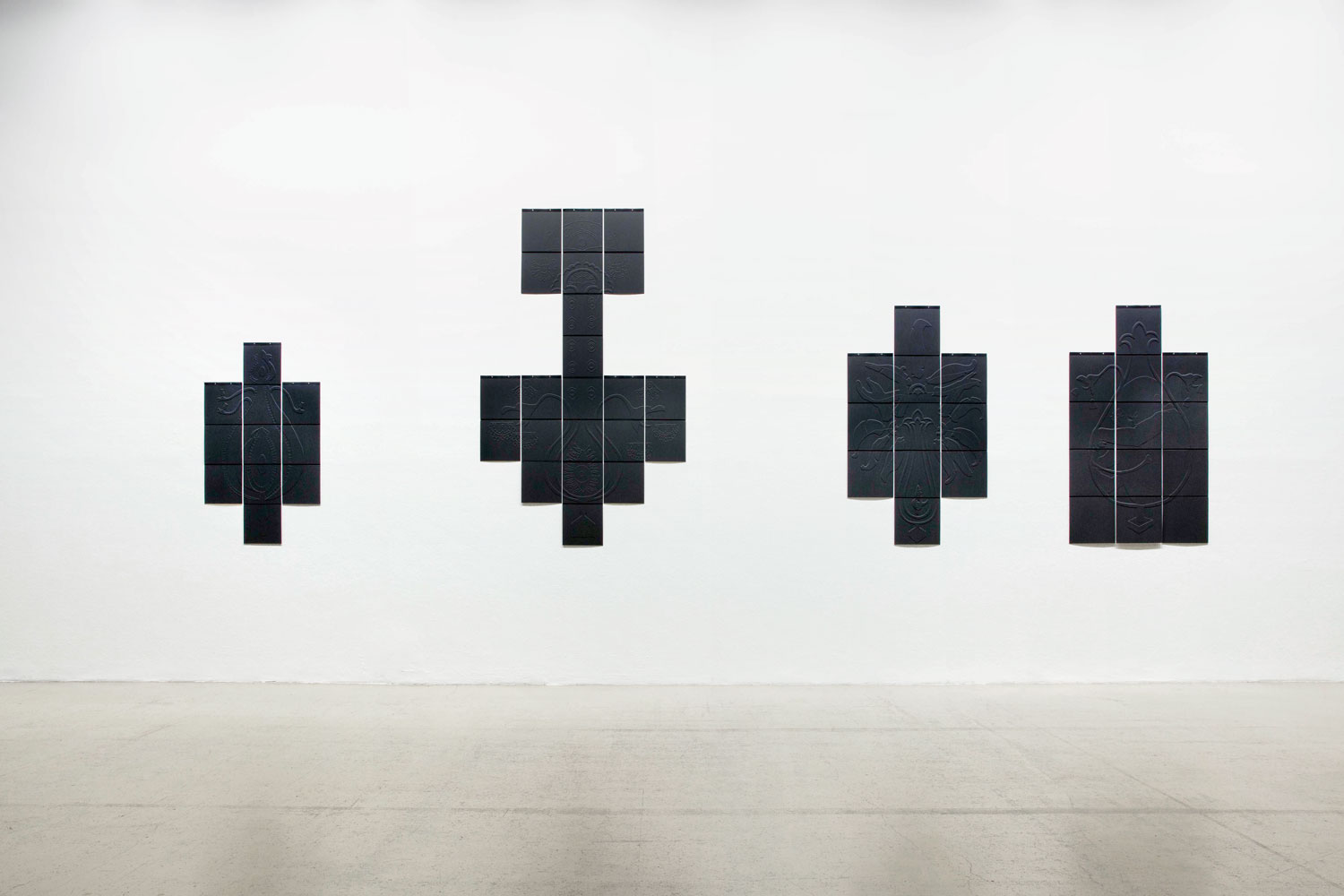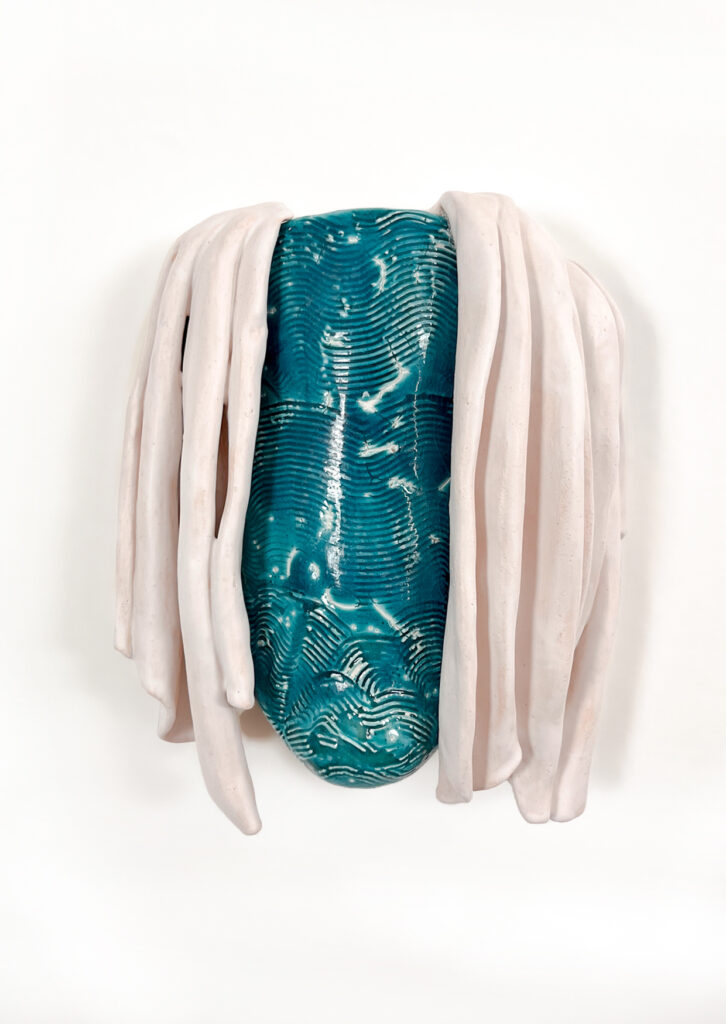
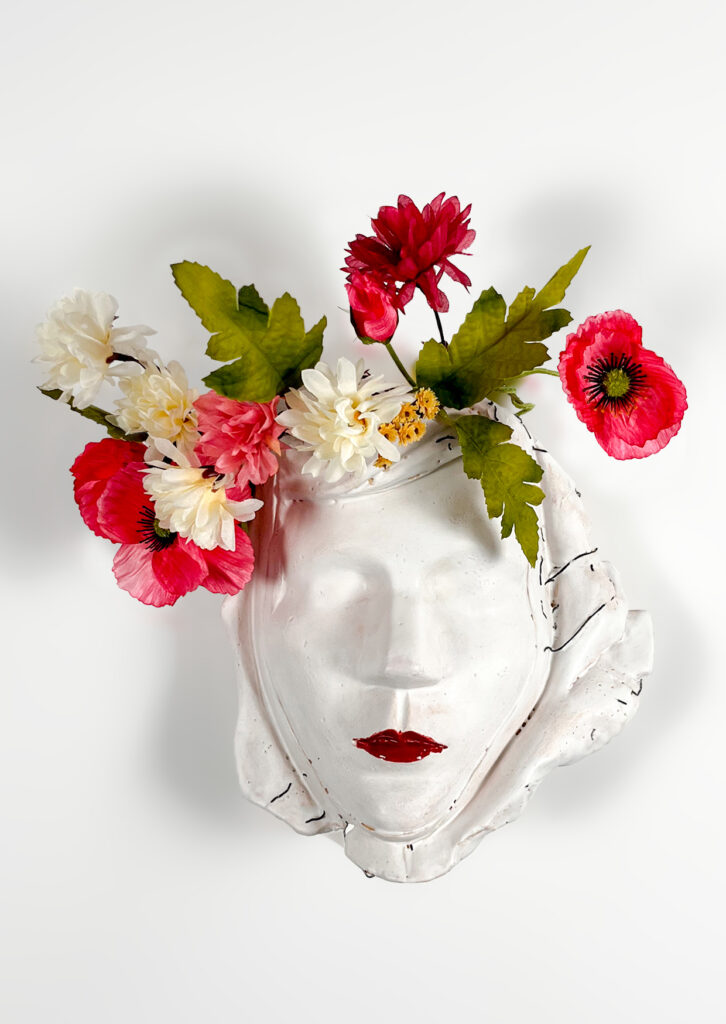
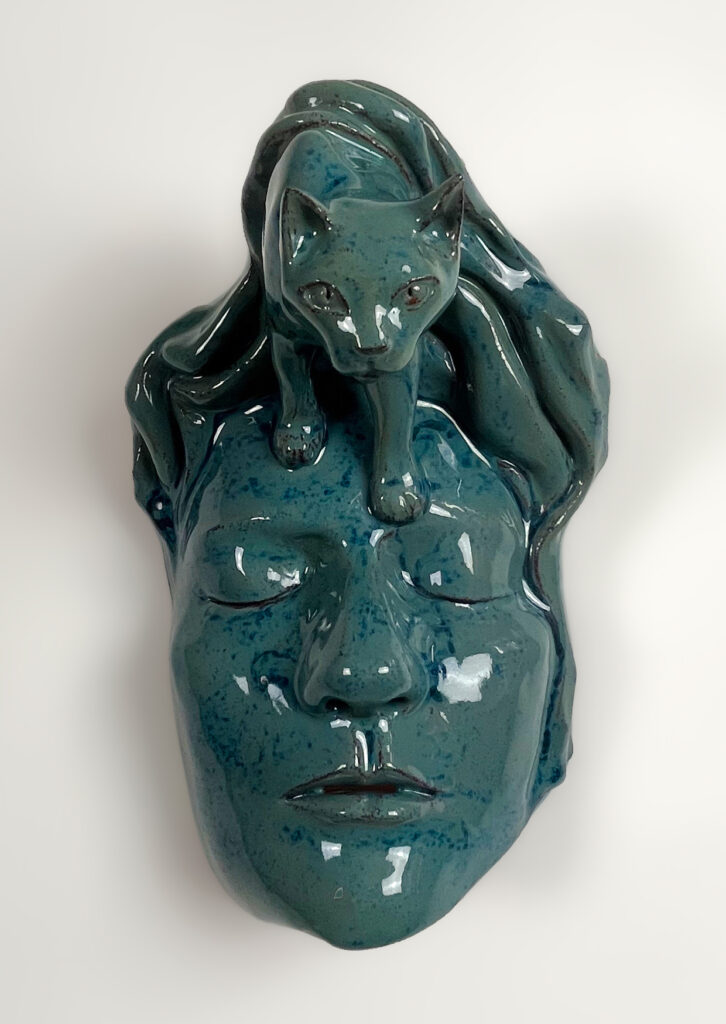

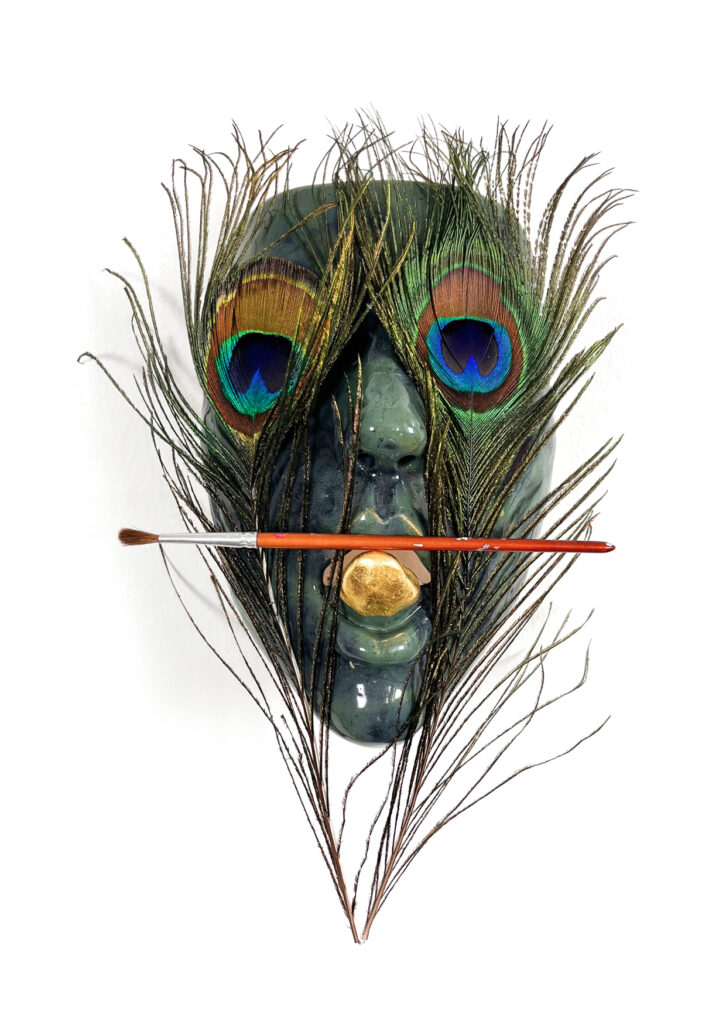

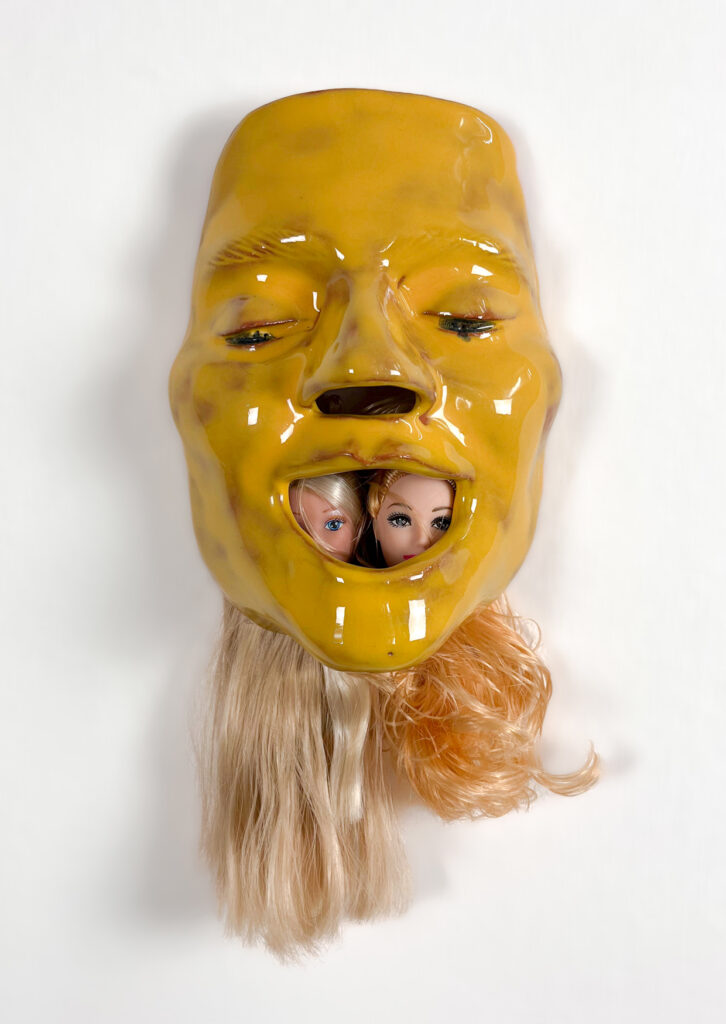
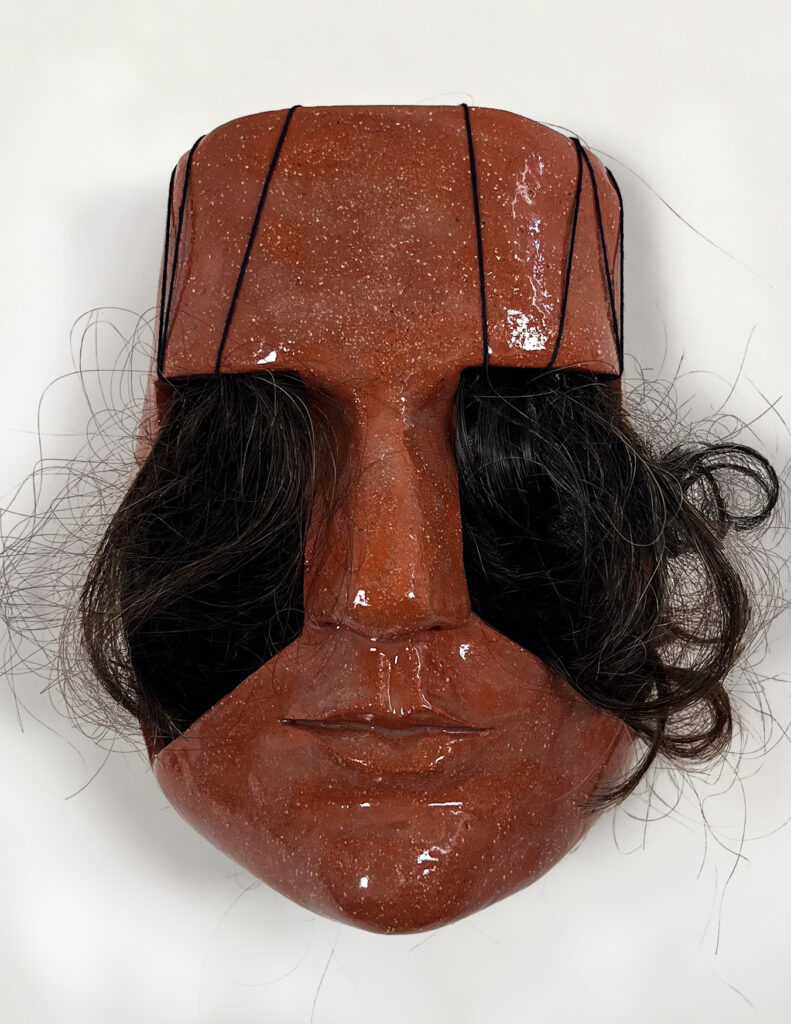


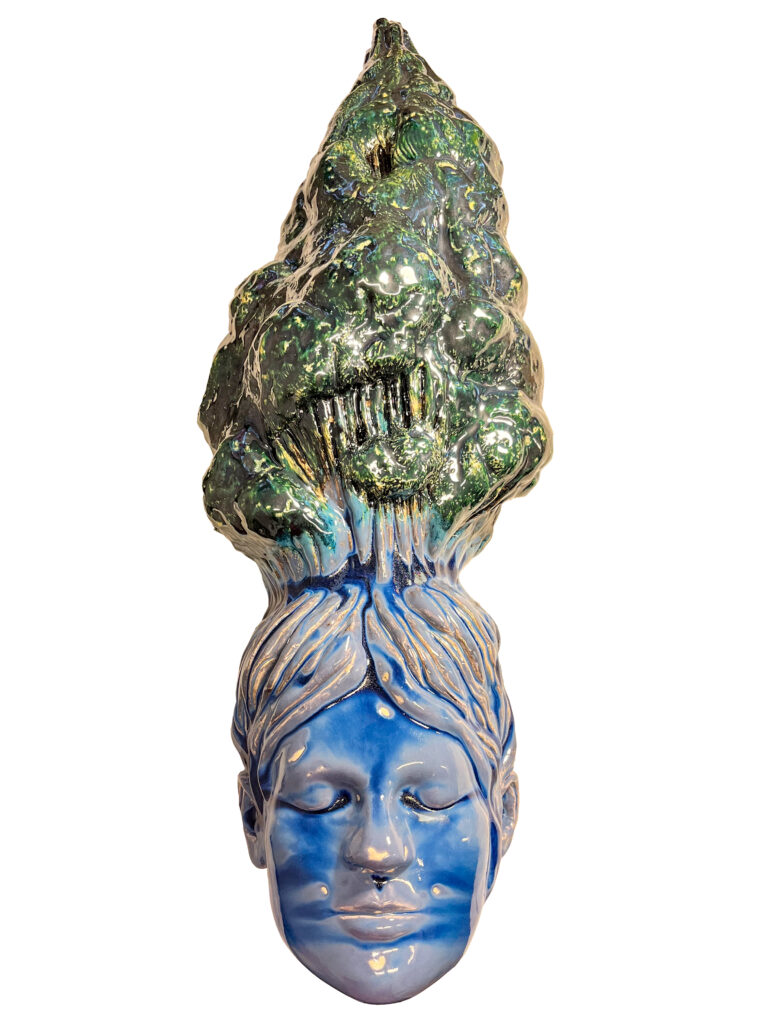
Identity, Unpacked
Text by Samantha Grob for the exhibition Matière noire
Throughout her life, from growing up in Iran to living in Germany, Azar Pajuhandé (*1982) has dealt with issues related to origins, gender, and religion ever-presently. Understanding that in order for her work to stand alone and not be viewed through the lenses of -cliche- cultural frames, she has to work hard… Her work is complex, elopes categorizing, and is influenced by comparative studies of Persian and Western culture and philosophy. Exploring her identity in diaspora, she explores the impact of access or lack of language(s). Spontaneity orchestrates her artistic process. She studies multi-layered works in which philosophy, art history, and craft unite. Her manifold artistic practice is a proof of profound research and unique craftsmanship.
Iran -her home, a homely place to which she feels strongly connected and yet so distant from- remains to be her strong intellectual haven. Today the artist lives and works in Berlin and devotes herself to do research on what it means to be an individual living in diaspora. While creating this series of masks her initial enquiry has transformed into an emotional journey, contemplating many aspects of her life: roots & childhood in contrast with the experiences of her present life. All masks are made from clay, symbolizing that the Earthly creations remain pliable in the hands of the master. New forms of expression continuously emerge through the sensual process of pottering, far from predetermined patterns and conventions.
Azar Pajuhandé’s masks do not conform to an orderly process of looking akin to “look, then think, then understand”. That is too simple, too schematic and misses entirely the point of the experience. It is the gap between the visual elements and the unleashed thoughts that allow a detour into the depths of unconsciousness. It is sidestepping. It is not the quest for an answer that turns out relevant, but staying with the question. Through this encounter with the artist’s personal history and memories, our very own consciousness is invited to partake, and take off in a personal journey of discovering unfurls.
We might start to wonder, what constitutes identity? Is it one, or is it many?
